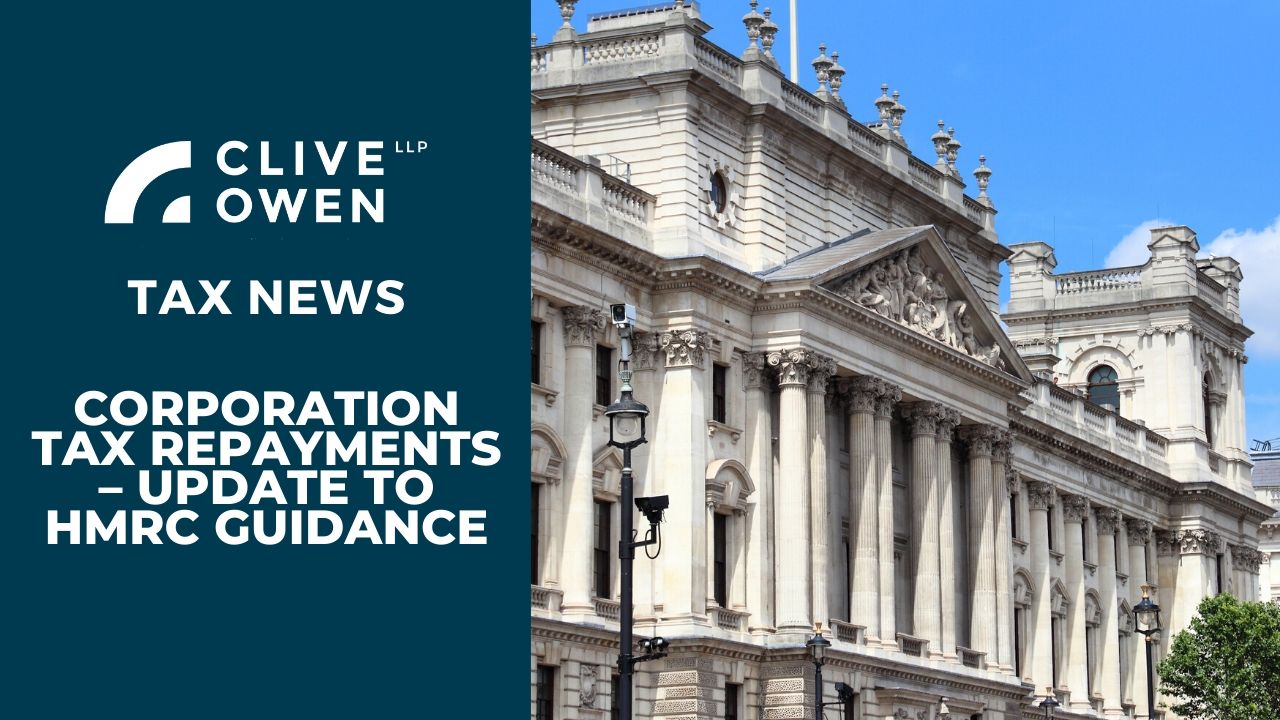
Date posted: 23rd Jun 2020
HMRC has recently updated its company tax manual outlining when companies can make claims for repayments of corporation tax to include anticipated losses due to the exceptional circumstances caused by the Covid-19 outbreak.
Under existing HMRC guidance, companies can carry back losses made in an accounting period against profits made in earlier periods. This results in a repayment of the tax paid on those profits.
Essentially, the updated guidance simply means that companies no longer have to wait until their current accounting period has reached its conclusion in order to make a repayment claim in this manner.
Instead, in exceptional circumstances, companies can now make a claim based upon ‘anticipated losses’ in order to inject cash into those businesses sooner. It’s hoped that this will have a beneficial effect for all industries but particularly those worse affected such as Hospitality and Tourism.
The new guidance relates to both larger businesses who fall under the quarterly instalment payment regime (QIPs) and those with smaller profits which pay their corporation tax on the usual date 9 months and 1 day after the year end.
HMRC have indicated that they will review each case based on its own facts and circumstances and as such there will be no firm ‘rule’ deciding whether a claim is accepted or rejected. As is to be expected HMRC have suggested that claims made later in accounting periods are likely to have a higher chance of success as any forecasts would be likely be more reliable and there is little chance of any recovery of the losses in the remainder of the period. However, it should be noted that they have not suggested that this precludes businesses from making claims early in their accounting period.
The more information that can be provided to substantiate the losses, the better. With that in mind HMRC have suggested a list of items which may be useful as evidence:
- Revised profit and loss forecasts.
- Management accounts and draft tax computations.
- Detailed reasoning and assumptions behind any figures submitted.
- Reports from the Board of Directors and any public statements made concerning the company’s trading position.
- Documents which have been shared with regulatory or financial institutions or confirm that these are the same forecasts used for internal planning purposes.
- Confirmation that the company is not expecting any exceptional income or gains in the existing accounting period.
- External evidence which supports the fact that the issues involved are unlikely to be resolved in the short term – this could include sector or industry commentary.
We would of course be happy to help prepare a claim along with the supporting evidence mentioned above. Therefore, should you believe that you may be in a position to make a claim based upon anticipated losses, please do not hesitate to contact our one of our Tax Partners Alan Moore, Nicola Bellerby or Rosemary Anderson at our Darlington, Durham and York offices here or call us on 01325 349700.
Read more below:
Read more June 2020 tax news below:
- Chancellor’s summer economic update – Covid -19 support update
- Region’s business leaders express their wishes for Rishi Sunak’s summer statement
- Coronavirus income support scheme
- VAT concession to be withdrawn on solicitors search fees
- Off payroll working changes to go ahead from April 2021
- R&D tax relief and COVID-19
- Tax residency and COVID-19
- Tax Expert Warns of Capital Gains Tax Changes for House Sales
- Electric cars – more good news!


